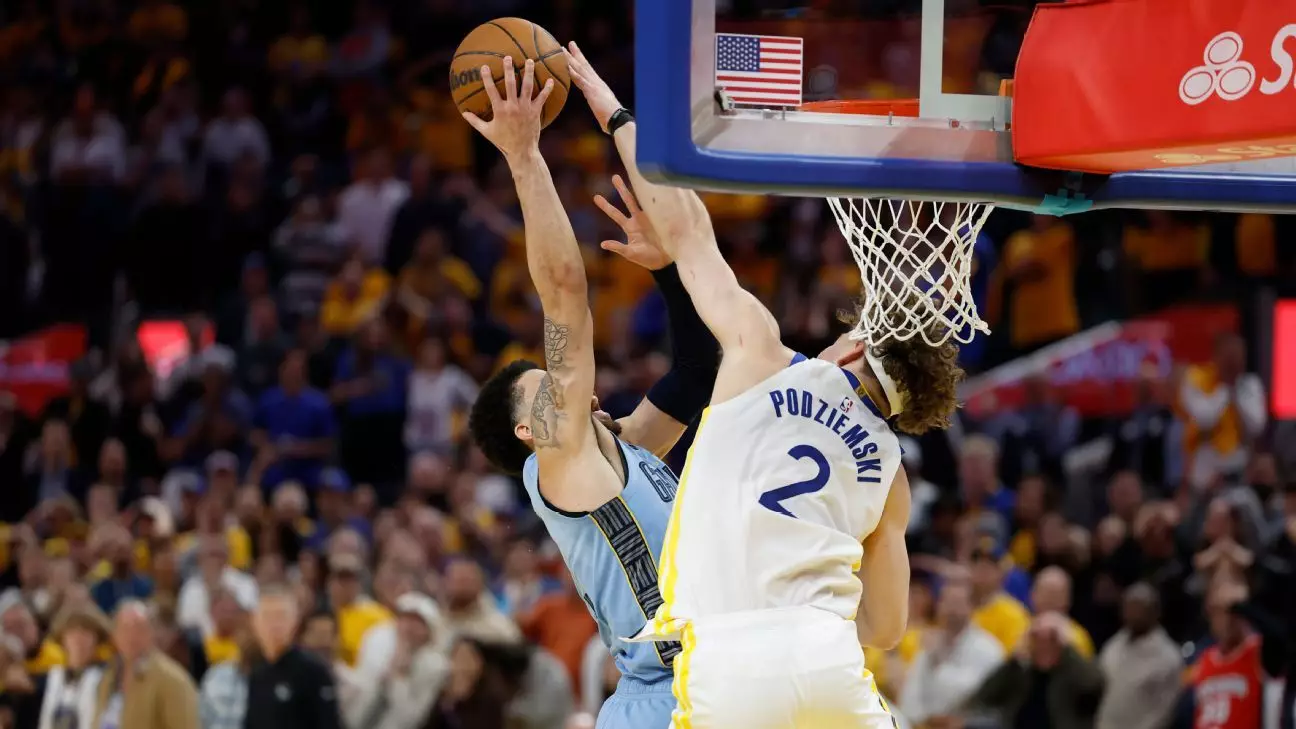The recent play-in game between the Golden State Warriors and the Memphis Grizzlies has reignited discussions about refereeing standards in the NBA. During this closely contested matchup, the league’s Last Two Minute Report disclosed that officials made crucial errors in the final moments of the game, casting a shadow of doubt on the integrity of officiating. Such missteps during critical junctures not only undermine the credibility of the referees but also impact the outcomes of games that have significant implications for the playoff picture.
A Closer Look at Crucial Calls
One of the most contentious moments came with just 37 seconds remaining on the clock when referee Josh Tiven awarded a personal foul against Warriors guard Brandin Podziemski, labeling a clean block on Scotty Pippen Jr. as a foul. This decision granted Pippen valuable free throw opportunities, allowing him to reduce the Warriors’ lead. If we consider the gravity of this misjudgment, it becomes apparent that a single officiating error can recalibrate the momentum of a game and, in turn, its outcome.
Another critical moment arrived 7.3 seconds before the final buzzer when an apparent violation of possession following a play involving Stephen Curry was overlooked by the officiating crew. The NBA later clarified that the ball had indeed gone out of bounds off Curry, which should have awarded Memphis an advantageous position. This sort of officiating inconsistency raises questions about the skills and training of referees to make crucial decisions under pressure.
Implications for Players and Teams
Mistakes like these deeply affect not only the players’ standings but also the psychological morale of a team. For the Grizzlies, each missed call and incorrect foul can foster doubts and resentment. Players thrive on consistency from referees, and when that consistency falters, it creates a chaotic environment where doubt can creep in. Conversely, teams like the Warriors may benefit from such errors, propelling them deeper into the playoffs despite flawed officiating.
Additionally, the two incorrect non-calls highlighted in the report draw attention to inconsistencies in rules enforcement. Draymond Green’s near-foul on Pippen that was overlooked could dramatically have changed the strategic dynamics of the game. Similarly, the missed offensive goaltending call against Zach Edey adds another layer of intrigue to the conversation. Teams should expect and deserve fair officiating, and when it falls short, the league needs to take perceptions of fairness seriously.
The Bigger Picture: Trust in the League
With the recent heightening of controversies surrounding game officiating, the NBA must confront the broader implications these decisions have on fan engagement and trust in the integrity of the game. Fans invest time, emotions, and money into watching these games, and flagrant errors in officiating threaten the very fabric of their loyalty.
For the league to foster a strong relationship with its audience, it becomes paramount for referees to demonstrate a commitment to accuracy and professionalism. This could involve improved training, the adoption of advanced technology for in-game officiating, and a transparent review process for controversial calls. In doing so, not only does the league enhance the quality of the gameplay, but it will also bolster its reputation among dedicated fans and players alike.


Leave a Reply